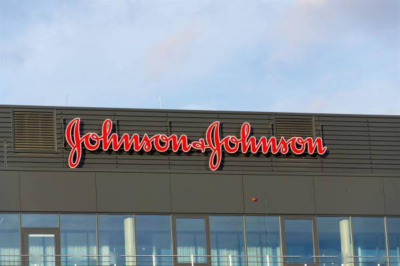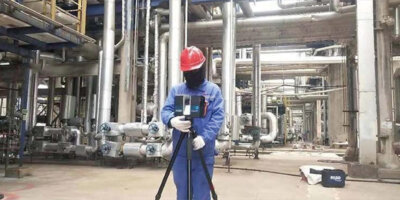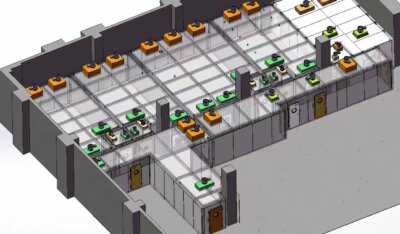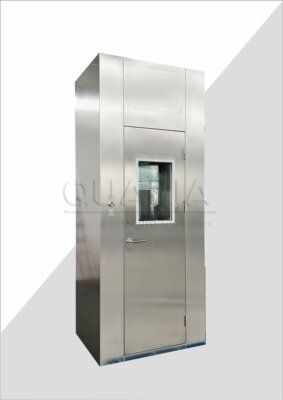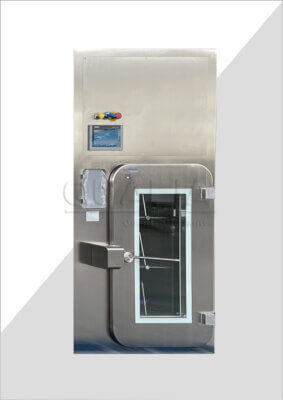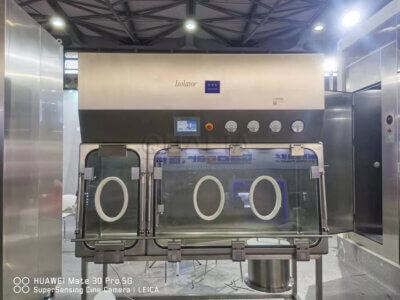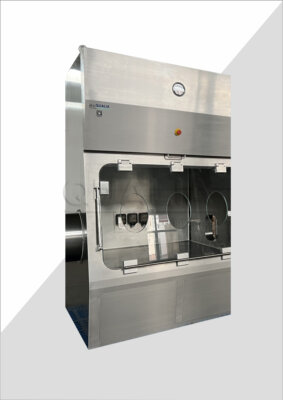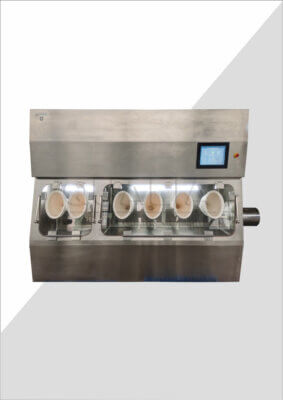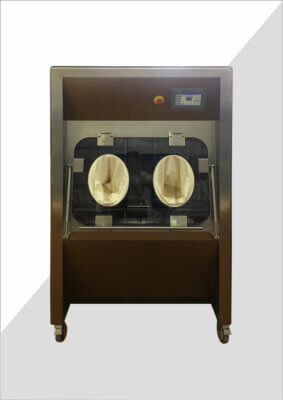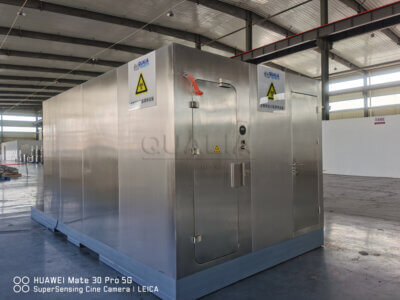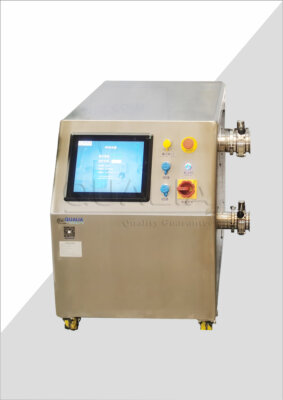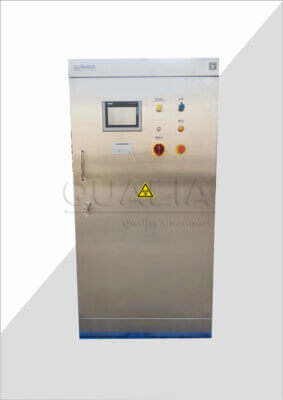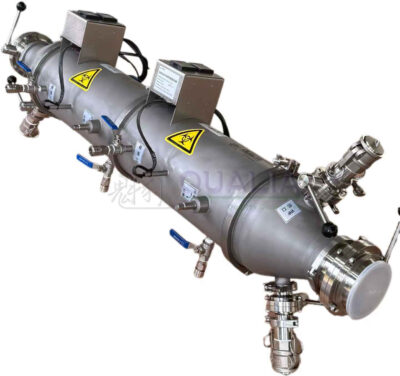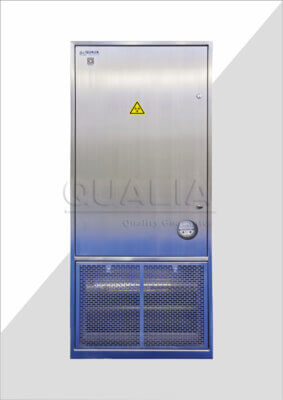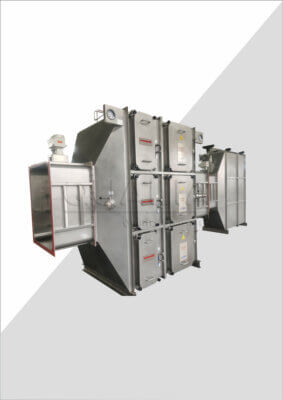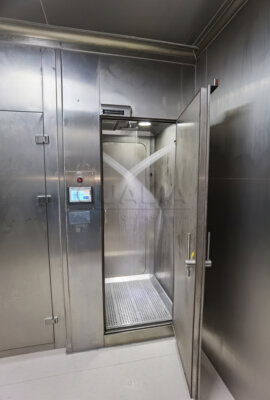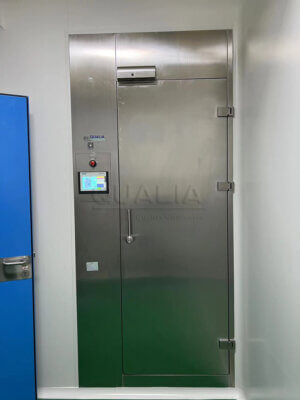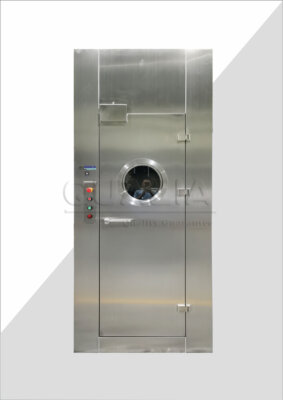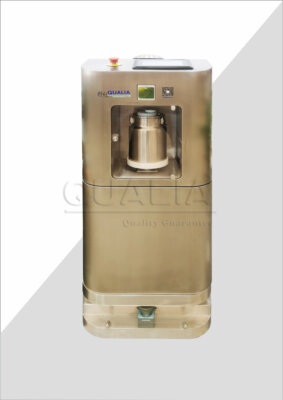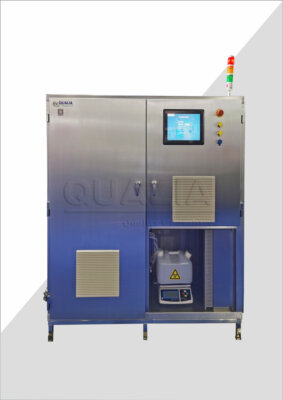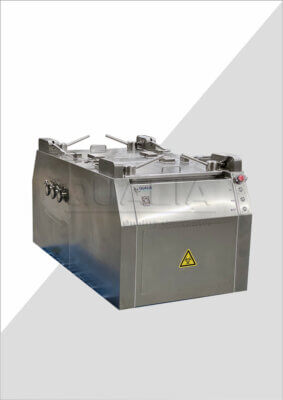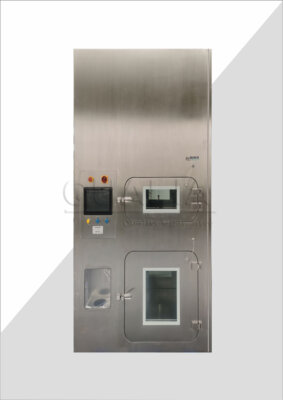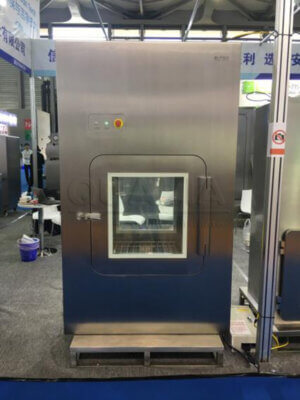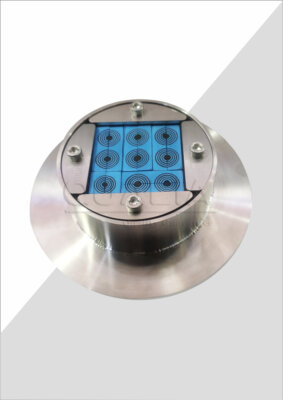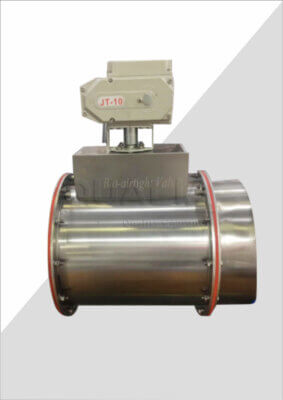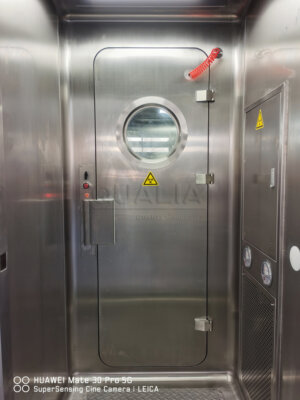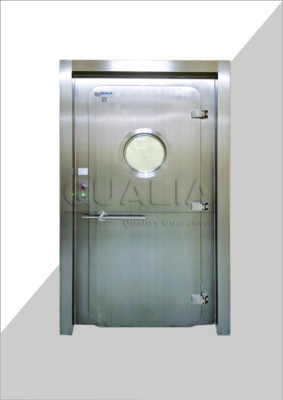In the world of pharmaceutical manufacturing and biotechnology, maintaining a clean and controlled environment is paramount to ensuring product quality and safety. One crucial component in this process is the GMP air shower, a vital tool in contamination control. As industries strive to meet increasingly stringent regulatory requirements, understanding and implementing proper GMP air shower requirements has become more important than ever.
GMP air showers serve as a critical barrier between controlled and non-controlled areas in cleanroom environments. These specialized systems use high-velocity, HEPA-filtered air to remove particles from personnel and equipment entering clean spaces. By adhering to GMP air shower requirements, companies can significantly reduce the risk of contamination, maintain product integrity, and ensure compliance with regulatory standards.
In this comprehensive guide, we'll explore the intricacies of GMP air shower requirements, their implementation, and best practices for maintaining these essential systems. From design considerations to operational protocols, we'll cover everything you need to know to ensure your air showers meet GMP standards and contribute to the overall cleanliness of your controlled environments.
As we delve into the world of GMP air shower requirements, it's important to recognize the critical role these systems play in maintaining the highest standards of cleanliness and compliance. Let's explore how these requirements shape the design, operation, and maintenance of air showers in GMP-regulated facilities.
GMP air showers are essential components in contamination control, using high-velocity HEPA-filtered air to remove particles from personnel and equipment entering cleanroom environments. Proper implementation and maintenance of these systems are crucial for meeting regulatory standards and ensuring product quality in pharmaceutical and biotechnology industries.
What Are the Key Design Considerations for GMP Air Showers?
When it comes to GMP air showers, design is paramount. The layout, materials, and specifications of these systems must meet strict requirements to ensure their effectiveness in contamination control.
Key design considerations include the use of smooth, non-porous surfaces that are easy to clean and resistant to microbial growth. The air shower chamber must be sized appropriately to accommodate personnel and equipment, with interlocked doors to prevent simultaneous opening.
Proper airflow is critical in GMP air shower design. The system should deliver high-velocity, HEPA-filtered air at a rate that effectively removes particles from surfaces. Additionally, the air pressure within the shower should be positive relative to adjacent areas to prevent the ingress of contaminants.
GMP air showers must be designed with smooth, cleanable surfaces, interlocked doors, and a properly sized chamber to accommodate users. The airflow system should deliver HEPA-filtered air at high velocity, maintaining positive pressure within the shower to prevent contamination.
| Design Feature | Requirement |
|---|---|
| Surface Material | Smooth, non-porous, cleanable |
| Door System | Interlocked |
| Air Filtration | HEPA filters |
| Air Velocity | Typically 20-30 m/s |
| Chamber Size | Minimum 1.2m x 1.2m x 2m |
In conclusion, the design of GMP air showers is a critical factor in their effectiveness. By carefully considering materials, layout, and airflow, facilities can ensure their air showers meet GMP requirements and provide optimal contamination control.
How Do GMP Air Shower Requirements Impact Filtration Systems?
Filtration systems are at the heart of GMP air shower functionality. These systems are responsible for removing particles from the air and ensuring that only clean, filtered air is used in the shower process.
GMP requirements dictate that air showers must use High-Efficiency Particulate Air (HEPA) filters. These filters are capable of removing 99.97% of particles 0.3 microns in size or larger, making them essential for maintaining the cleanliness levels required in GMP environments.
The placement and maintenance of these filters are also crucial. Filters should be positioned to ensure uniform air distribution throughout the shower chamber. Regular testing and replacement of filters are necessary to maintain their efficiency and comply with GMP standards.
GMP air shower requirements mandate the use of HEPA filters capable of removing 99.97% of particles 0.3 microns or larger. Proper placement and regular maintenance of these filters are essential for maintaining the required cleanliness levels in GMP environments.
| Filtration Aspect | Requirement |
|---|---|
| Filter Type | HEPA |
| Efficiency | 99.97% for particles ≥0.3 microns |
| Testing Frequency | At least annually |
| Air Changes | 20-30 per minute |
In summary, the filtration system is a critical component of GMP air showers. By adhering to strict requirements for filter type, efficiency, and maintenance, facilities can ensure their air showers effectively remove contaminants and maintain the cleanliness levels necessary for GMP compliance.
What Are the Operational Protocols for GMP Air Showers?
Operational protocols for GMP air showers are designed to ensure these systems function effectively and consistently. These protocols cover various aspects of air shower use, from entry procedures to cycle times and user behavior.
One key aspect of operational protocols is the proper use of the air shower by personnel. This includes guidelines on how to enter the shower, the correct positioning during the cycle, and the appropriate clothing or protective equipment to wear.
Cycle times are another critical factor. GMP requirements typically specify minimum cycle times to ensure adequate particle removal. These times may vary based on the specific application and level of cleanliness required.
GMP operational protocols for air showers include specific guidelines for user behavior, cycle times, and proper protective equipment. These protocols ensure consistent and effective use of the air shower system, maintaining the required level of cleanliness in controlled environments.
| Operational Aspect | Requirement |
|---|---|
| Cycle Time | Typically 20-30 seconds |
| User Positioning | Arms raised, rotating slowly |
| Protective Equipment | Cleanroom garments, hairnets, gloves |
| Entry/Exit Procedure | One-way flow, no backtracking |
In conclusion, adhering to proper operational protocols is essential for the effective use of GMP air showers. By following these guidelines, facilities can ensure that their air showers consistently perform their critical role in contamination control.
How Do Monitoring and Validation Processes Ensure GMP Compliance?
Monitoring and validation processes are crucial components of GMP compliance for air showers. These processes ensure that the air shower system consistently performs as required and maintains the necessary level of cleanliness.
Regular monitoring of air shower performance includes checks on air velocity, particle counts, and filter efficiency. These checks should be performed at specified intervals and the results documented as part of the facility's quality management system.
Validation processes involve thoroughly testing the air shower system to ensure it meets all specified requirements. This includes initial qualification of the system and periodic requalification to confirm ongoing compliance.
GMP compliance for air showers requires regular monitoring of system performance and comprehensive validation processes. These include checks on air velocity, particle counts, and filter efficiency, as well as initial and periodic system qualification.
| Monitoring Aspect | Frequency |
|---|---|
| Air Velocity | Weekly |
| Particle Counts | Daily |
| Filter Efficiency | Quarterly |
| Full System Validation | Annually |
In summary, robust monitoring and validation processes are essential for ensuring GMP compliance of air showers. By implementing these processes, facilities can maintain the highest standards of cleanliness and contamination control in their controlled environments.
What Are the Maintenance Requirements for GMP Air Showers?
Proper maintenance is crucial for ensuring the ongoing effectiveness and compliance of GMP air showers. Regular maintenance not only extends the life of the system but also ensures it continues to meet GMP requirements over time.
Maintenance requirements for GMP air showers include regular cleaning of all surfaces, inspection of door seals and interlocks, and checks on the airflow system. Filter replacement is a critical maintenance task, with HEPA filters typically requiring replacement at specified intervals based on usage and environmental conditions.
Documentation of all maintenance activities is essential for GMP compliance. This includes keeping detailed records of cleaning, inspections, repairs, and filter replacements.
GMP maintenance requirements for air showers include regular cleaning, inspection of components, and timely replacement of filters. Comprehensive documentation of all maintenance activities is crucial for demonstrating ongoing compliance with GMP standards.
| Maintenance Task | Frequency |
|---|---|
| Surface Cleaning | Daily |
| Door Seal Inspection | Weekly |
| Airflow System Check | Monthly |
| Filter Replacement | As needed (typically annually) |
In conclusion, adhering to proper maintenance requirements is essential for keeping GMP air showers in optimal condition. By implementing a comprehensive maintenance program, facilities can ensure their air showers continue to meet GMP standards and provide effective contamination control.
How Do GMP Air Shower Requirements Vary Across Industries?
While the fundamental principles of GMP air shower requirements remain consistent, there can be variations in specific requirements across different industries. These variations often reflect the unique needs and risk profiles of each sector.
In the pharmaceutical industry, for example, air shower requirements may be particularly stringent due to the critical nature of drug manufacturing. Biotechnology firms might have specific requirements related to the handling of biological materials.
The food and beverage industry, while also requiring high standards of cleanliness, may have different specific requirements compared to pharmaceutical or semiconductor manufacturing. Understanding these industry-specific variations is crucial for ensuring compliance and optimal performance of air shower systems.
GMP air shower requirements can vary across industries, reflecting the specific needs and risk profiles of each sector. While fundamental principles remain consistent, industries such as pharmaceuticals, biotechnology, and food and beverage may have unique specifications for their air shower systems.
| Industry | Specific Requirement |
|---|---|
| Pharmaceuticals | Ultra-low particle counts |
| Biotechnology | Specialized decontamination features |
| Food and Beverage | Resistance to cleaning chemicals |
| Semiconductors | Electrostatic discharge protection |
In conclusion, while GMP air shower requirements share common principles across industries, it's important to understand and implement industry-specific variations. This ensures that air shower systems are optimally configured for the unique needs of each sector, providing effective contamination control and regulatory compliance.
What Future Trends Are Shaping GMP Air Shower Requirements?
As technology advances and regulatory landscapes evolve, GMP air shower requirements are also subject to change. Staying abreast of these trends is crucial for maintaining compliance and optimizing contamination control strategies.
One emerging trend is the integration of air showers with broader contamination control systems. This includes the use of smart technologies for real-time monitoring and automated adjustment of air shower parameters based on environmental conditions.
Another trend is the increasing focus on energy efficiency and sustainability. Future GMP air shower requirements may place greater emphasis on energy-efficient designs and the use of environmentally friendly materials and processes.
Future trends in GMP air shower requirements include integration with smart contamination control systems, increased focus on energy efficiency, and the adoption of sustainable practices. These trends reflect broader shifts in technology and environmental consciousness in the industry.
| Future Trend | Potential Impact |
|---|---|
| Smart Integration | Real-time monitoring and adjustment |
| Energy Efficiency | Reduced operating costs, smaller environmental footprint |
| Sustainable Materials | Lower environmental impact, improved longevity |
| Advanced Filtration | Higher efficiency particle removal |
In conclusion, the landscape of GMP air shower requirements is continually evolving. By staying informed about future trends, facilities can prepare for upcoming changes and ensure their air shower systems remain at the forefront of contamination control technology.
Conclusion
GMP air shower requirements play a crucial role in maintaining the cleanliness and compliance of controlled environments across various industries. From design considerations to operational protocols, monitoring processes, and maintenance requirements, every aspect of GMP air showers is carefully regulated to ensure optimal performance and contamination control.
As we've explored in this guide, adhering to GMP air shower requirements involves a comprehensive approach. It requires careful attention to design elements such as materials and airflow, implementation of robust filtration systems, adherence to strict operational protocols, and diligent monitoring and maintenance practices.
Understanding industry-specific variations in requirements and staying informed about future trends are also crucial for maintaining compliance and optimizing air shower performance. As technology advances and regulatory landscapes evolve, so too will the standards and best practices for GMP air showers.
By implementing the guidelines and best practices outlined in this guide, facilities can ensure their GMP air shower requirements are met, contributing to the overall quality and safety of their products. Remember, in the world of contamination control, attention to detail and commitment to compliance are key to success.
As industries continue to strive for higher standards of cleanliness and product quality, the role of GMP air showers will remain critical. By staying informed and proactive in implementing and maintaining these systems, companies can ensure they meet regulatory requirements, protect product integrity, and maintain their competitive edge in an increasingly demanding market.
QUALIA remains at the forefront of providing innovative solutions that meet and exceed GMP air shower requirements, helping facilities across industries maintain the highest standards of cleanliness and compliance.
External Resources
Cleanroom Air Showers: A Quick Guide – This guide explains how cleanroom air showers work, their benefits, and their importance in maintaining contamination control, product quality, and compliance with GMP standards.
What Is Cleanroom Air Shower? – This article details the functioning of cleanroom air showers, including their use of high-velocity HEPA-filtered air to remove particles from personnel and products.
How Do Cleanroom Air Showers Work? – This resource provides a detailed explanation of how cleanroom air showers operate, including the use of HEPA-filtered air, interlocked doors, and the high air velocity required to remove particles.
Guidelines for Good Manufacturing Practice (GMP) – This document from the European Commission outlines GMP guidelines, including the environmental cleanliness levels required for different manufacturing operations.
Cleanroom Air Showers for GMP Compliance – This article focuses on the role of cleanroom air showers in ensuring GMP compliance, discussing the design, operation, and validation of these systems to prevent contamination in cleanroom environments.
GMP Cleanroom Design and Operation – This resource provides an overview of GMP cleanroom design and operation, including the integration of air showers as a critical component for maintaining cleanliness and compliance with regulatory standards.
Related Contents:
- Air Showers with HEPA Filters: 99.97% Efficiency
- Modular Air Showers: Customizable Cleanliness
- Cleanroom Air Shower Booths: Complete Systems
- Pharmaceutical Air Showers: GMP Compliance
- Pass-Through Air Showers: Efficient Transitions
- Personnel Air Showers: Employee Decontamination
- Air Shower Types: Cleanroom Solutions for 2025
- Hospital Air Showers: Infection Control
- Air Shower Control Panels: Precision Management

